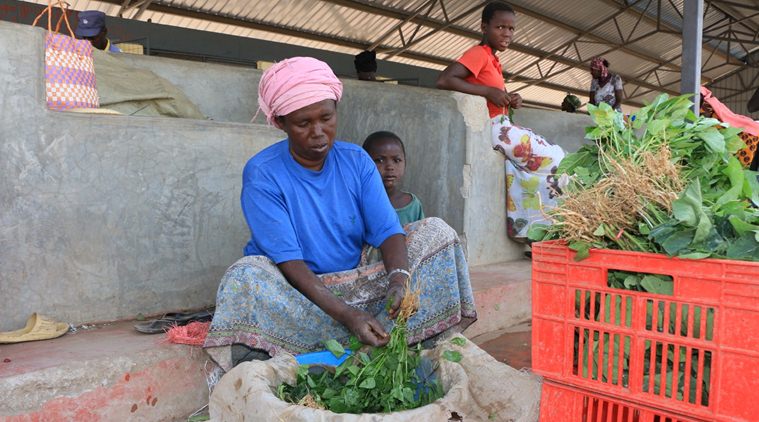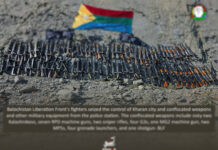New Delhi (NVI): Despite supply chain disruptions due to Covid-19 pandemic, refugees at Kalobeyei settlement and Kakuma camps in Kenya have access to fresh vegetables as they grow their own!
Supported by the World Food Programme, these refugees are able to grow fresh crops. WFP’s support to these refugees is proving vital during the pandemic when many countries in Africa and in the world are under the threat of a catastrophic hunger.
Kalobeyei is about 20-minutes from the Kakuma refugee camps in the arid Turkana county, northwestern Kenya. It was established with local authorities as an integrated settlement where the local people and refugees live side by side, unlike the camps.
Most fresh food vendors in Kalobeyei and Kakuma markets are women, and the majority are refugees, according to a WFP report. A variety of produce is available at these food markets as people from diverse nationalities are living in the settlement. The markets cater to distinct tastes and cultures. One can even find fresh spices here, grown by refugees themselves.

Before the pandemic outbreak, vendors at these markets sold cabbage and tomatoes sourced from as far as Kitale market, 400 km away; and red onions from across the border in Uganda’s Moroto, a town about 260 km away, reports WFP.
However, due to movement restrictions in the wake of Covid-19, supply from Kitale and Uganda has been disrupted. Due to the dusk to dawn curfew, trucks would take a long time to reach Kakuma. This also means that the produce will cost more and by the time it arrives at the stall, it would be no longer fresh.
On the brighter side, the disruption in supply chain through traditional channels has led to an increase in demand for vegetables grown locally such as a variety of leafy vegetables, eggplant, and okra freshly plucked from gardens around the settlement.
Other crops sold at these market places include matembele (sweet potato leaves), murere, cassava leaves, amaranth, pumpkin leaves, and cowpea leaves — all grown in Kalobeyei. With less produce arriving from outside, the demand for these locally grown vegetables is growing and so are the prices.
Crops are now being grown on the side of a dam built in the area by WFP. A water storage tank was also built by WFP for the residents.
Back in 2016, when Kalobeyei settlement was opened, there was little infrastructure and the arid landscape did not give much scope for farming. However, with support from the European Union, the World Food Programme (WFP) built water harvesting structures, gardens, shops, and modern markets.
A lot of transformation has taken place in these past four years. Refugees and the host population can now irrigate small plots growing vegetables for consumption and sale, operate businesses and run grocery stalls in the local markets.
WFP has built three modern markets — two in Kalobeyei settlement and one in Kakuma town. The open-air market structures are covered with a high roof protecting traders against the harsh sun or rain while allowing ample air circulation. These structures currently host 122 traders, most of them drawn from the refugee community.








